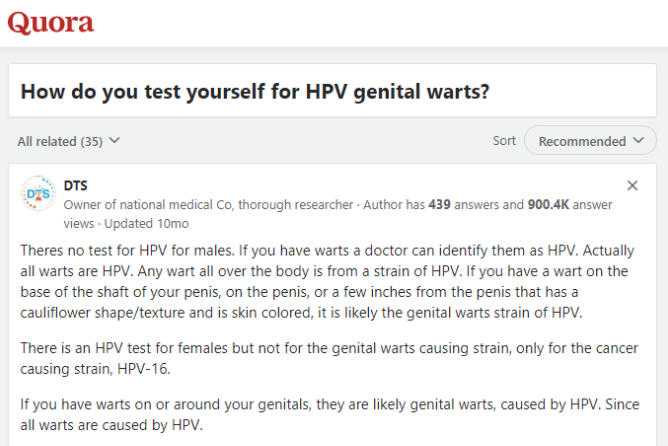It’s not uncommon to see many discussions about HPV (Human Papillomavirus) on social media platforms. Here are some typical reactions:
- “Oh no, does this mean I have an STD?”
- “What has my boyfriend/husband been up to? (Turning into Sherlock Holmes)”
- “My sex life is over…”
- “It’s a terminal illness like AIDS, isn’t it?”

Hold on! Don’t panic! While contracting HPV can be concerning, it’s not as scary as you might think. Let Positive Singles explain with facts and logic.
What is HPV? Does Getting Infected Mean You’ll Get Cervical Cancer?
HPV stands for Human Papillomavirus, a virus that targets the stratified squamous epithelium of human skin and mucous membranes.
In an era where cancer and viruses can strike fear into anyone, hearing about viruses or cancer might make your legs go weak. But worry not—most colds we usually get are also caused by viruses and aren’t as terrifying as they seem.
The HPV family is quite large, with over 100 types identified. Let’s focus on two main categories:
- High-risk Types: 16, 18, 31, 33, 35, 39, 45, 51, 52, 56, 58, 59, and 68
Associated with cervical cancer and precancerous lesions. - Low-risk Types: 6, 11, 40, 42, 43, 44, 53, 54, 61, 72, 73, and 81
Linked to genital warts.
Now you know: Only high-risk HPV infections could potentially lead to cervical cancer, which is treatable.
Misconceptions About HPV Transmission
Only promiscuous people get HPV?
Please, it’s 2025—why do such misconceptions still exist?
- Data shows that 50% to 70% of women in their reproductive years may have been infected with at least one type of HPV.
- For adults who are sexually active, the risk of contracting HPV can be as high as 80%.
- Even using condoms cannot guarantee 100% prevention against the virus.
- There are frequent reports of young children being infected with HPV, sometimes even when neither parent is a carrier.
Thus, you see, this virus is everywhere and can infect both men and women.
How is HPV Transmitted?
Many wonder:
- Can kissing spread it?
- Can sharing a toilet with a roommate transmit it?
- Sharing towels or toothbrushes?
- If I’m infected, does it mean my husband had an affair?
Let’s understand how HPV spreads:
1. Sexual Transmission
- Direct skin-to-skin contact is the most effective way for HPV to spread. The virus doesn’t travel through blood or bodily fluids (such as semen).
- Contact in the perineal area is necessary for women to contract HPV, though intercourse isn’t required!
- Poor hygiene during sexual activities can lead to infection. This is why up to 80% of women may have been infected with HPV at some point in their lives, and an HPV infection doesn’t imply promiscuity or unclean sexual history.
Despite this, it’s important to note that if men neglect hygiene, their partners are more likely to contract HPV. Studies show that the foreskin can harbor dirt and even HPV, leading to gynecological inflammations and contributing to HPV-related cervical cancer. Therefore, gentlemen with long foreskins should consider circumcision for better health!
2. Indirect Contact
- HPV can spread through indirect contact in daily life, such as using toilets, soap, swimming pools, bathtubs, etc.
3. Mother-to-Child Transmission
- There are reports of infants testing positive for HPV at birth. Pregnant women who test positive for HPV can opt for a cesarean section to reduce the risk of transmission to the baby.
Notably, HPV infections are asymptomatic; medical tests are necessary for detection.
Misconceptions like “only promiscuous behavior leads to HPV” are completely wrong! Also, HIV isn’t solely transmitted through sex, so avoid making unfounded accusations!
How to Prevent HPV Infection?
1. Use Condoms
- Using condoms is crucial for preventing HPV and HIV infections. Additionally, maintaining a stable partner and personal hygiene is important.
2. Disinfect Underwear
- Underwear should be thoroughly disinfected using hot water since HPV is heat-sensitive.
- Disinfecting at 50-60°C for 10-20 minutes or at 100°C for about 1 minute, followed by drying under sunlight, is recommended.
- Avoid tight, non-breathable underwear to keep the external genital area clean and dry.
3. Avoid Sharing Personal Items
- Such as towels, bed sheets, bath towels, toothbrushes, razors, toilets, bathtubs, etc.
- These items should be regularly disinfected and sun-dried.
4. Maintain Good Habits and Boost Immunity
- Avoid smoking, limit alcohol consumption, avoid staying up late, exercise regularly, and strengthen immunity to fight off viruses.
5. Get Vaccinated Against HPV
- Eligible women can choose to get the HPV vaccine, which is over 90% effective in preventing cervical cancer.
There are three types of HPV vaccines available. Here’s a brief overview:
Before vaccination, note these contraindications:
- Allergy to any component of the vaccine.
- Acute diseases, severe chronic conditions, acute exacerbations of chronic diseases, or fever.
- Planning pregnancy, pregnant, or breastfeeding.
- Already vaccinated with any type of HPV vaccine.
- Used immunoglobulin or blood products within 3 months.
- Received rabies vaccine within 28 days.
Getting vaccinated doesn’t mean you’re completely protected! Regular cervical cancer screenings are still necessary regardless of the vaccine type received.
For more information on herpes and dating tips, check out these resources:
